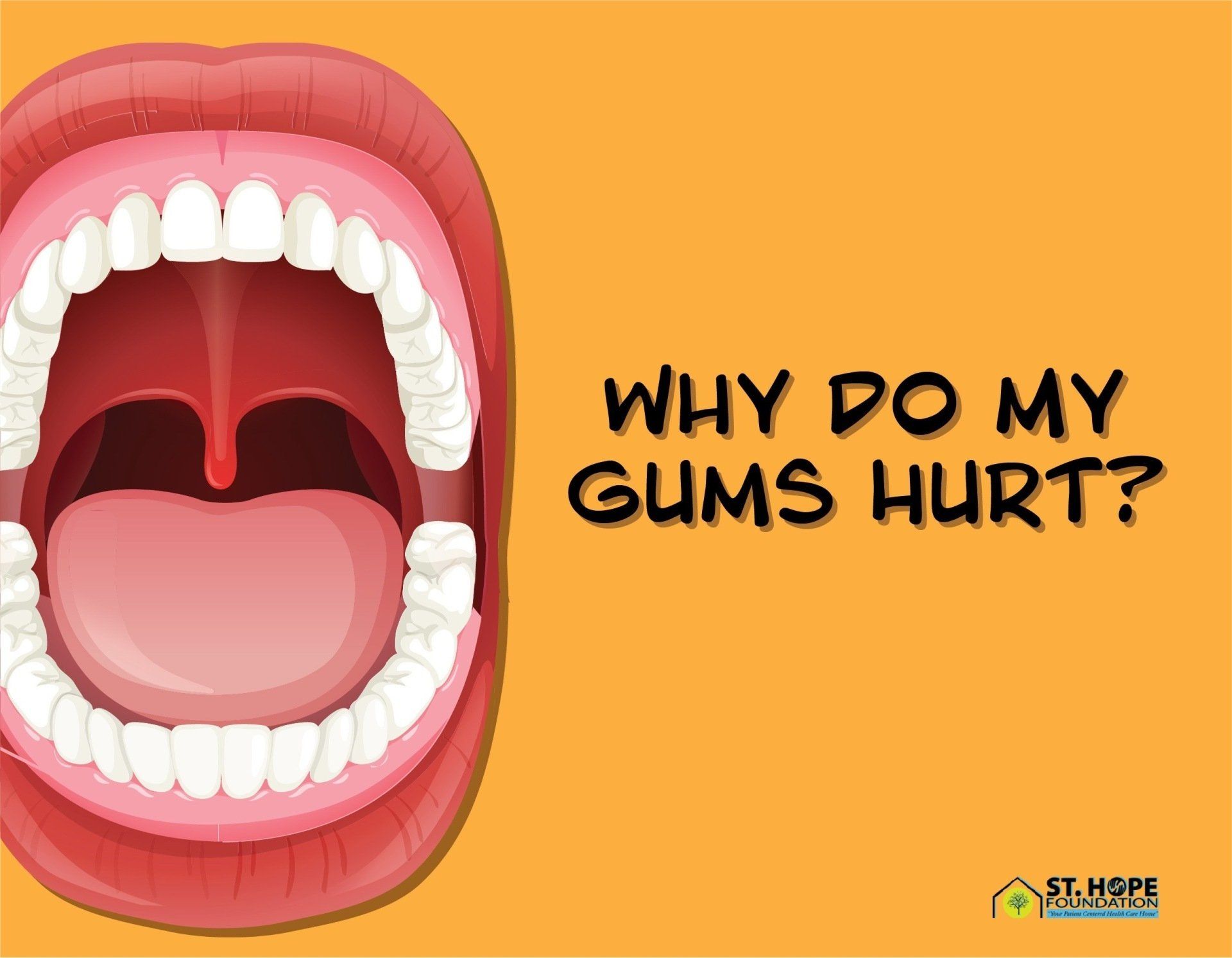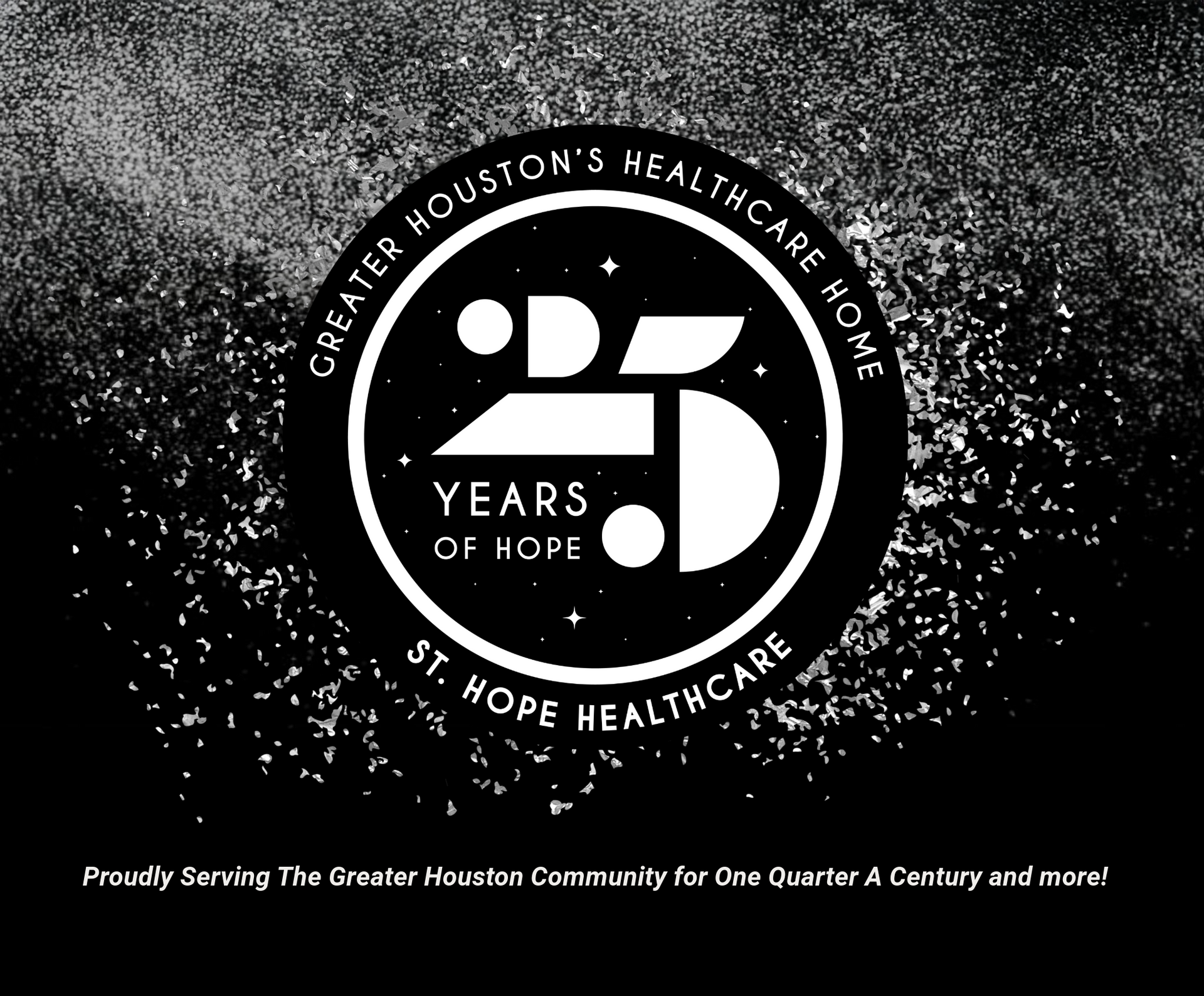Recent Posts
Why Do My Gums Hurt?

Sore, irritated and bleeding gums are a fairly common occurrence. Gum pain can be caused by a variety of conditions like poor oral hygiene, pregnancy, gum disease or malnutrition. When inflamed, sore gums can be swollen, tender to the touch and red in appearance. Unfortunately, many people downplay a gum problem, thinking it will go away on its own.
However, when left untreated, gum pain can lead to chronic inflammation. Researchers also suspect there may be links between gum disease and an increased risk of diabetes, stroke, heart disease, pregnancy complications and rheumatoid arthritis.
What Causes Gum Pain?
Gum Disease
Gingivitis is a common gum disease that causes your gums to become irritated and swollen. Gingivitis is often the result of poor oral hygiene, which causes plaque to build up on the gum line and teeth. If left untreated, gingivitis develops into periodontitis, which can lead to tooth loss. Regular visits to the dentist and proper dental hygiene can be effective in preventing these gum diseases.
Vitamin Deficiency
Sore gums can be caused by vitamin deficiencies, especially vitamin C and E deficiencies. Vitamin C is responsible for repairing your gums and teeth and keeping them healthy. If your vitamin C levels drop too low, you could develop scurvy which can cause anemia and gum disease. Eating a balanced and nutrient-dense diet can prevent vitamin deficiency and improve your overall health.
Pregnancy
Women may experience sore and swollen gums during pregnancy. Pregnancy gingivitis is caused by increased levels of the hormone progesterone. One side effect of this hormone is increased blood circulation in the gums. More blood means swelling and a higher likelihood of gum bleeding when you brush your teeth or floss. Pregnancy gingivitis most frequently effects women in their second trimester, but it can potentially occur through most of a pregnancy.
Tobacco
Smoking cigarettes and chewing tobacco can damage your gums. If you’re a regular tobacco user, this is what may be causing your gums to hurt. To improve your oral health and your overall health, consider quitting tobacco products altogether.
Oral Cancer
Oral cancer can develop on nearly every tissue surface in your mouth, from your gums and inner cheeks to the floor and roof your mouth or your tongue.
If you have a mouth sore or irritation that doesn’t heal after two weeks, see a dentist for a proper diagnosis. If you smoke tobacco, drink a lot of alcohol or have a poor diet, you are increasing your chances of developing oral cancer.
How to Treat Gum Pain
Home Remedies
You can soothe sore and swollen gums by rinsing your mouth with a saltwater solution, which helps kill off bacteria. You can also place a warm compress over your face to lessen gum pain or a cold compress to help decrease swelling.
Avoid alcohol, tobacco and strong mouthwash. These can irritate your gums and cause more pain and swelling.
Medical Help
If it’s been two weeks and your gums continue to hurt, you should see a dentist. Your dentist will most likely ask you detailed questions about your symptoms and lifestyle. They may recommend mouth X-rays or order blood tests to rule out infection.
The prescribed treatment may range from oral rinses and special toothpaste to antibiotics and even surgery if the dentist determines you have periodontitis.
Your dentist may also recommend performing a deep cleaning called scaling and root planing. This procedure involves the removal of plaque and tartar stuck above and below the gumline. Although root planing isn’t pleasant, it’s far better than the alternative gum disease or more invasive corrective treatments.
How to Prevent Painful and Swollen Gums
Maintaining oral hygiene and eating a healthy diet are key factors in preventing gum disease.
Brush your teeth, use mouthwash and floss regularly to decrease plaque and tartar buildup. Additionally, see your dentist every six months for a checkup and cleaning.
If You Need to See a Dentist, We’re Here to Help You
The health care experts at St. Hope Foundation are committed to full-body health. Oral health is a huge contributor to overall wellness, which is why we encourage every patient to stay on top of their oral hygiene routines. If you’re a Houston resident who needs to see a dentist, you should strongly consider making use of our many affordable dental care services.
Give us a call at (713) 778-1300 to schedule your dentist appointment.









